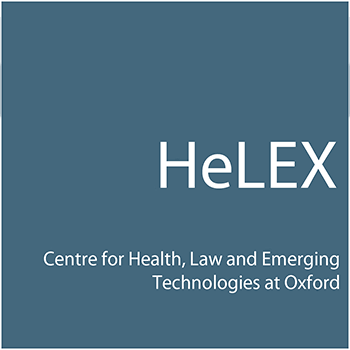Understanding expectations as techniques of legitimation
Imagined futures through global bioethics standards for health research
Posted:
Time to read:
One of the key strands of my work as a legal scholar has involved drawing upon insights from science and technology studies (STS), a broad field that brings together ideas from a range of disciplines. I use these insights to illuminate space for fresh examination of the relationships between law, science and technology, and society. My main case studies for discussion come from public health and new health technologies.
In a recent special issue on ‘Law, Biomedical Technoscience and Imaginaries’ (Journal of Law and the Biosciences, co-edited with Richard Ashcroft), we argue for further law-led engagement with concepts and ideas popular in STS and cognate disciplines, such as imaginaries. The broader aim of the special issue and my own contribution to it is to stimulate law-led dialogue with STS, as well as cognate disciplines. Specifically, this dialogue seeks to widen normative and solution-oriented scholarship within STS. Although central to law, such dialogue is still rather minimal within STS.
In seeking to meet this aim, our work thus takes up the call, notably from Riles, Valverde, and Cowan and Wincott, for sociolegal scholars to resituate themselves in the wider circuits of knowledge, and to become more assertive among those from other fields and disciplines who may dominate or displace them from ‘legal' terrain.
In my own article, I examine the International Council on Harmonisation of Technical Requirements for Registration of Pharmaceuticals for Human Use’s (ICH’s) mission and technological framing, ‘harmonisation for better health’. I discuss the expectations or strong beliefs about what can occur that flow from this mission, produce an imaginary, and legitimate ICH governance and standards, and the regulators and laws that reference them, among their publics.
‘Imaginaries’ is a relatively new concept within legal and sociolegal scholarship, but chimes with wider sociolegal studies. Beckert, working within economics, links expectations to imaginaries and formulate the latter as simply ‘imagined futures’. While Jasanoff and Kim, within STS, refer to sociotechnical imaginaries, or ‘collectively imagined forms of social life and social order reflected in the design and fulfilment of nation-specific scientific and/or technological projects’ (at 120).
The ICH case study clarifies how the expectations and imaginary flowing from the ICH’s mission support and legitimate focus on technological development in ICH standards, which are de facto binding through reference to them in law. This focus limits the boundaries of responsibility and accountability to the production of safe, quality, and effective pharmaceuticals, and individual ethical conduct to achieve it.
However, the expectations and imaginary may also distort attention and resources toward treatment using pharmaceuticals, and marginalise wider systemic issues relating to social justice, particularly those affecting the global South. The Covid-19 pandemic clarifies how this may operate.
The wider social conditions that cause the virus’ spread seem less important than immediate attempts to deal with the emergency. Yet, distracting attention away from the social infrastructures needed to address all public health problems may ultimately undermine efforts to deal with Covid-19. Moreover, Covid-19 vaccines and treatments, like all technologies, are patentable in all World Trade Organisation states i.e. globally under the Agreement on Trade-Related Aspects of Intellectual Property (TRIPS). Under this the patent holder (usually also the marketer) is able to prevent generic equivalents from entering the market for the duration of the patent grant (20 years). While patents provide market exclusivity, ICH standards provide a key basis for actually benefiting from exclusivity through marketing and sales. Essential medicines and vaccines thus become more costly and difficult to access, particularly for poorer countries in the global South.
In addition, the ICH’s current main technique of public legitimation is communication of expectations and transparency to demonstrate that practices are in accordance with them. By implication, public participation, another possible technique of legitimation, is sidelined in ICH governance.
Despite reforms of the ICH since it became an international association under Swiss law in 2015, including greater transparency and an assembly, the organisation compares unfavourably with e.g. the European Medicines Agency. The latter sees public participation as enhancing transparency; improving the quality, safety, and efficacy of pharmaceuticals; and helping to address wider social justice issues. It is with this in mind, and drawing on STS, that I argue there should be increased public participation in the ICH through similar innovations in governance. These could further bolster legitimation.
Overall, discussion of the ICH underscores the way expectations may be shaped to produce an imaginary. The public legitimation these provide appears central to ensuring take up of the ICH’s standards and accomplishing the mission of ‘harmonisation for better health’. Such discussion thus further attests to the importance of law-led work that uses concepts drawn from STS to widen space for discussion, illuminate problems, and propose solutions to them.
Share:

